 W
WArab socialism is a political ideology based on the combination of pan-Arabism and socialism. Arab socialism is distinct from the much broader tradition of socialist thought in the Arab world, which predates Arab socialism by as much as fifty years. The term "Arab socialism" was coined by Michel Aflaq, the principal founder of Ba'athism and the Arab Socialist Ba'ath Party in Syria, in order to distinguish his version of socialist ideology from the international socialist movement.
 W
WBaathism is an Arab nationalist ideology which promotes the creation and development of a unified Arab state through the leadership of a vanguard party over a progressive revolutionary government. The ideology is officially based on the theories of the Syrian intellectuals Michel Aflaq, Zaki al-Arsuzi, and Salah al-Din al-Bitar. Baathist leaders of the modern era include the former leader of Iraq, Saddam Hussein, former President of Syria, Hafez al-Assad and the current President of Syria, Bashar al-Assad.
 W
WBevanism was the ideological argument for the Bevanites, a movement on the left wing of the Labour Party in the late 1950s and typified by Aneurin Bevan. Also called 'the Old Left', it was named after its dominant personality; however, its intellectual direction was given by Richard Crossman and some of his friends, including Michael Foot and Barbara Castle. Bevanism was opposed by the Gaitskellites, who are variously described as centre-left, social democrats, or "moderates" within the party. The Gaitskellites typically won most of the battles inside Parliament, but Bevanism was stronger among local Labour activists. Bevanites split over the issue of nuclear weapons, and the movement faded away after Bevan died in 1960.
 W
WBuddhist socialism is a political ideology which advocates socialism based on the principles of Buddhism. Both Buddhism and socialism seek to provide an end to suffering by analyzing its conditions and removing its main causes through praxis. Both also seek to provide a transformation of personal consciousness to bring an end to human alienation and selfishness. People who have been described as Buddhist socialists include Buddhadasa Bhikkhu, B. R. Ambedkar, S. W. R. D. Bandaranaike, Han Yong-un, Girō Senoo, U Nu, Uchiyama Gudō, Norodom Sihanouk, and Takagi Kenmyo.
 W
WChavismo, also known in English as Chavism or Chavezism, is a left-wing political ideology based on the ideas, programs and government style associated with the former Venezuelan President Hugo Chávez that combines elements of democratic socialism, socialist patriotism, Bolivarianism, and Latin American integration. Supporters of Chávez and Chavismo are known as Chavistas.
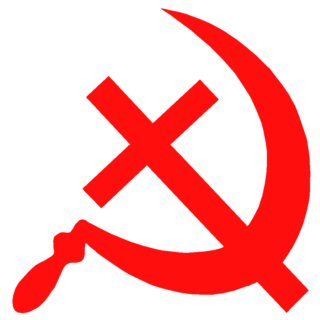 W
WChristian socialism is a religious and political philosophy that blends Christianity and socialism, endorsing left-wing politics and socialist economics on the basis of the Bible and the teachings of Jesus. Many Christian socialists believe capitalism to be idolatrous and rooted in the sin of greed. Christian socialists identify the cause of social inequality to be the greed that they associate with capitalism. Christian socialism became a major movement in the United Kingdom beginning in the 19th century. The Christian Socialist Movement, known as Christians on the Left since 2013, is one formal group.
 W
WClassical Marxism refers to the economic, philosophical and sociological theories expounded by Karl Marx and Friedrich Engels as contrasted with later developments in Marxism, especially Marxism–Leninism.
 W
WCraxism was and is according to some extant, an Italian political ideology based on the thought of socialist leader Bettino Craxi, who was also Prime Minister in the 1980s. It was informal ideology of the Italian Socialist Party from 1976 to 1994, the year of the end of the "First Republic" and of PSI, because of strong corruption scandals.
 W
WFourierism is the systematic set of economic, political, and social beliefs first espoused by French intellectual Charles Fourier (1772–1837). Based upon a belief in the inevitability of communal associations of people who worked and lived together as part of the human future, Fourier's committed supporters referred to his doctrines as associationism. Political contemporaries and subsequent scholarship has identified Fourier's set of ideas as a form of utopian socialism—a phrase that retains mild pejorative overtones.
 W
WThe Fourth International Posadist is a Trotskyist international. It was founded in 1962 by J. Posadas, who had been the leader of the Latin America Bureau of the Fourth International in the 1950s, and of the Fourth International's section in Argentina. Between their split from the International Secretariat of the Fourth International in 1962 and Posadas' death in 1981, Posadists developed a strain of communism that included several fringe ideas, which brought them into conflict with more mainstream left-wing groups.
 W
WGuevarism is a theory of communist revolution and a military strategy of guerrilla warfare associated with communist revolutionary Ernesto "Che" Guevara, a leading figure of the Cuban Revolution who believed in the idea of Marxism–Leninism and embraced its principles.
 W
WHoxhaism is a variant of anti-revisionist Marxism–Leninism that developed in the late 1970s due to a split in the anti-revision movement, appearing after the ideological dispute between the Communist Party of China and the Party of Labour of Albania in 1978. The ideology is named after Enver Hoxha, a notable Albanian communist leader, who served as the First Secretary of the Party of Labour.
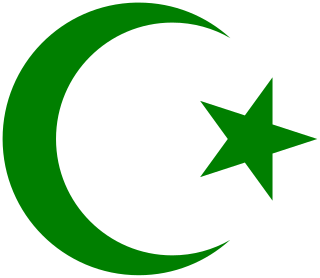 W
WIslamic socialism is a political philosophy that incorporates Islamic principles into socialism. As a term, it was coined by various Muslim leaders to describe a more spiritual form of socialism. Islamic Socialists also often use the Quran to defend their positions. A Turkish Islamic socialist organisation, Anti-capitalist Muslims, openly challenged right-wing Muslims to read the Quran and "try to disprove the fact that it is leftist".
 W
WJuche is the official ideology of the Democratic People's Republic of Korea, described by the government as "Kim Il-sung's original, brilliant and revolutionary contribution to national and international thought". It postulates that "man is the master of his destiny", that the masses are to act as the "masters of the revolution and construction", and that by becoming self-reliant and strong, a nation can achieve true socialism.
 W
WKaysone Phomvihane Thought is a political philosophy that builds upon Marxism–Leninism and Ho Chi Minh Thought with the political philosophy developed by Kaysone Phomvihane, the first leader of the Communist Lao People's Revolutionary Party (LPRP). It was first formalised by the LPRP at its 10th National Congress, held in 2016. Kaysone Phomvihane Thought is Marxism–Leninism adapted to Laotian circumstances and specific time periods. The ideology includes views on the basic issues of the Laotian Revolution, specifically the application and development of Marxism–Leninism to the material conditions of Laos. The contents of Kaysone Phomvihane Thought was codified and developed by the LPRP with help from the Communist Party of Vietnam.
 W
WKhrushchevism was a form of Marxism–Leninism which consisted of the theories and policies of Nikita Khrushchev and his administration in the Soviet Union.
 W
WLeft communism, or the communist left, is a position held by the left wing of communism, which criticises the political ideas and practices espoused by Marxist–Leninists and social democrats. Left communists assert positions which they regard as more authentically Marxist than the views of Marxism–Leninism espoused by the Communist International after its Bolshevization by Joseph Stalin and during its second congress.
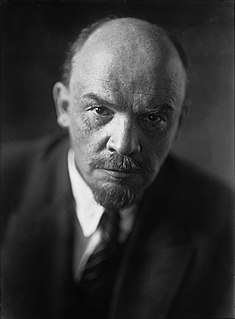 W
WLeninism is a political ideology developed by Russian Marxist revolutionary Vladimir Lenin that proposes the establishment of the dictatorship of the proletariat led by a revolutionary vanguard party, as the political prelude to the establishment of communism. The function of the Leninist vanguard party is to provide the working classes with the political consciousness and revolutionary leadership necessary to depose capitalism in the Russian Empire (1721–1917). Leninist revolutionary leadership is based upon The Communist Manifesto (1848) identifying the communist party as "the most advanced and resolute section of the working class parties of every country; that section which pushes forward all others." As the vanguard party, the Bolsheviks viewed history through the theoretical framework of dialectical materialism, which sanctioned political commitment to the successful overthrow of capitalism, and then to instituting socialism; and, as the revolutionary national government, to realize the socio-economic transition by all means.
 W
WLibertarian Marxism is a broad scope of economic and political philosophies that emphasize the anti-authoritarian and libertarian aspects of Marxism. Early currents of libertarian Marxism such as left communism emerged in opposition to Marxism–Leninism.
 W
WMarxism is a method of socioeconomic analysis that uses a materialist interpretation of historical development, better known as historical materialism, to understand class relations and social conflict as well as a dialectical perspective to view social transformation. It originates from the works of 19th-century German philosophers Karl Marx and Friedrich Engels. As Marxism has developed over time into various branches and schools of thought, there is currently no single definitive Marxist theory.
 W
WMarxism–Leninism–Maoism–Prachanda Path is the ideological line of the Unified Communist Party of Nepal (Maoist), also known as the UCPN(M). It is considered a development of Marxism–Leninism–Maoism (MLM) and named after the leader of the UCPN(M), Pushpa Kamal Dahal, commonly known as Prachanda. Prachanda Path was proclaimed in 2001. The ideology was partially inspired by the example of the Communist Party of Peru – Shining Path, which refers to its ideological line as Marxism–Leninism–Maoism–Gonzalo Thought.
 W
WMujibism refers to the political view held and propagated by Sheikh Mujibur Rahman, the architect of the liberation movement of Bangladesh. Mujibism consists of four fundamental policies: nationalism, socialism, democracy and secularism. On 7 June 1972, he said that before the country's liberation, the slogans were the six points, now the slogans were the four pillars. When the Constitution of Bangladesh was adopted in 1972, the four pillars become the four fundamental state policies of Bangladesh.
 W
WNasserism is a Arab nationalist, socialist political ideology based on the thinking of Gamal Abdel Nasser, one of the two principal leaders of the Egyptian Revolution of 1952, and Egypt's second President. Spanning the domestic and international spheres, it combines elements of Arab socialism, republicanism, nationalism, anti-imperialism, developing world solidarity, and international non-alignment.
 W
WNeo-Marxism is a Marxist school of thought encompassing 20th-century approaches that amend or extend Marxism and Marxist theory, typically by incorporating elements from other intellectual traditions such as critical theory, psychoanalysis, or existentialism.
 W
WNkrumaism is an African socialist political ideology based on the thinking and writing of Kwame Nkrumah. Nkrumah, a pan-Africanist and socialist, served as Prime Minister of the Gold Coast from 1952 until 1960 and subsequently as President of Ghana before being deposed by the National Liberation Council in 1966.
 W
WOrthodox Marxism is the body of Marxist thought that emerged after the death of Karl Marx (1818–1883) and which became the official philosophy of the majority of the socialist movement as represented in the Second International until the First World War in 1914. Orthodox Marxism aims to simplify, codify and systematize Marxist method and theory by clarifying the perceived ambiguities and contradictions of classical Marxism.
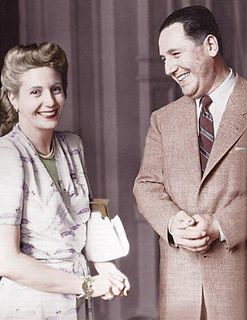 W
WPeronism, also called justicialism, is an Argentine political movement based on the ideas and legacy of Argentine ruler Juan Perón (1895–1974). It has been an influential movement in 20th and 21st century Argentine politics. Since 1946, Peronists won 10 out of the 13 presidential elections in which they have been allowed to run. The main Peronist party is the Justicialist Party. The policies of Peronist presidents have differed greatly, but the general ideology has been described as "a vague blend of nationalism and labourism" or populism.
 W
WPlatformism is a form of anarchist organization that seeks unity from its participants, having as a defining characteristic the idea that each platformist organization should include only people that are fully in agreement with core group ideas, rejecting people who disagree. It stresses the need for tightly organized anarchist organizations that are able to influence working class and peasant movements.
 W
WSankarism is a term sometimes applied to denote a left-wing ideological trend within the politics of Burkina Faso, a landlocked country in West Africa, as well as the policies of the military government led by Captain Thomas Sankara. Sankara came to power in what was then the Republic of Upper Volta in a popularly supported 1983 military coup, and ruled until his assassination in a coup led by Blaise Compaoré in 1987.
 W
WScientific socialism is a term coined in 1840 by Pierre-Joseph Proudhon in his book What is Property? to mean a society ruled by a scientific government, i.e. one whose sovereignty rests upon reason, rather than sheer will:Thus, in a given society, the authority of man over man is inversely proportional to the stage of intellectual development which that society has reached; and the probable duration of that authority can be calculated from the more or less general desire for a true government, — that is, for a scientific government. And just as the right of force and the right of artifice retreat before the steady advance of justice, and must finally be extinguished in equality, so the sovereignty of the will yields to the sovereignty of the reason, and must at last be lost in scientific socialism.
 W
WShachtmanism is the form of Marxism associated with Max Shachtman (1904–1972). It has two major components: a bureaucratic collectivist analysis of the Soviet Union and a third camp approach to world politics. Shachtmanites believe that the Stalinist rulers of proclaimed socialist countries are a new ruling class distinct from the workers and reject Trotsky's description of Stalinist Russia as a "degenerated workers' state".
 W
WSocialism of the 21st century is an interpretation of socialist principles first advocated by German sociologist and political analyst Heinz Dieterich and taken up by a number of Latin American leaders. Dieterich argued in 1996 that both free-market industrial capitalism and 20th-century socialism have failed to solve urgent problems of humanity such as poverty, hunger, exploitation of labour, economic oppression, sexism, racism, the destruction of natural resources and the absence of true democracy. Socialism of the 21st century has democratic socialist elements, but it also resembles revisionism.
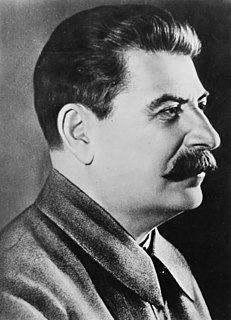 W
WStalinism is the means of governing and policies which were implemented in the Soviet Union from 1927 to 1953 by Joseph Stalin. It included the creation of a one-party totalitarian police state, rapid industrialization, the theory of socialism in one country, collectivization of agriculture, intensification of the class struggle under socialism, a cult of personality, and subordination of the interests of foreign communist parties to those of the Communist Party of the Soviet Union, deemed by Stalinism to be the leading vanguard party of communist revolution at the time.
 W
WState ownership, also called government ownership and public ownership, is the ownership of an industry, asset, or enterprise by the state or a public body representing a community as opposed to an individual or private party. Public ownership specifically refers to industries selling goods and services to consumers and differs from public goods and government services financed out of a government's general budget. Public ownership can take place at the national, regional, local, or municipal levels of government; or can refer to non-governmental public ownership vested in autonomous public enterprises. Public ownership is one of the three major forms of property ownership, differentiated from private, collective/cooperative, and common ownership.
 W
WTitoism is a political philosophy most closely associated with Josip Broz Tito during the Cold War. It is characterized by a broad Yugoslav identity, workers' self-management, a political separation from the Soviet Union, and leadership in the Non-Aligned Movement.
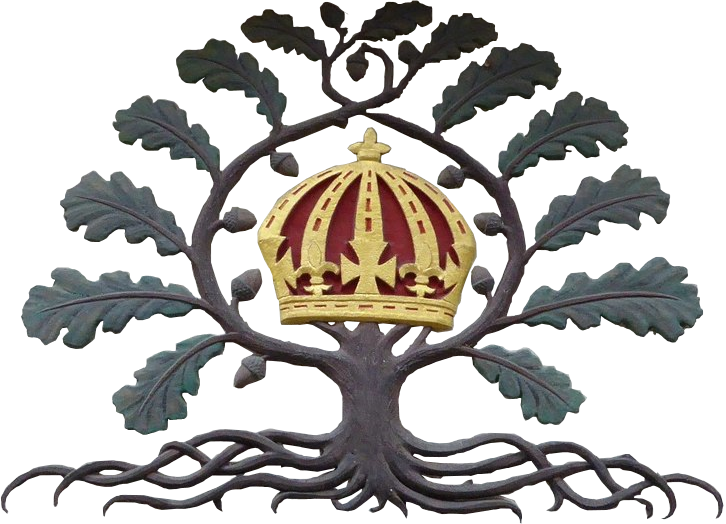 W
WTory socialism was a term used by historians, particularly of the early Fabian Society, to describe the governing philosophy of the British Prime Minister Benjamin Disraeli. The term is also used by many free-market advocates to describe certain strains of conservatism that are more reformist-minded and believe in a more activist government.
 W
WTrotskyism is the political ideology and branch of Marxism developed by Ukrainian-Russian revolutionary Leon Trotsky and by some other members of the Left Opposition and Fourth International. Trotsky self-identified as an orthodox Marxist, a revolutionary Marxist, and Bolshevik–Leninist, a follower of Marx, Engels, and of 3L: Lenin, Karl Liebknecht, Rosa Luxemburg. He supported founding a vanguard party of the proletariat, proletarian internationalism, and a dictatorship of the proletariat based on working class self-emancipation and mass democracy. Trotskyists are critical of Stalinism as they oppose Joseph Stalin's theory of socialism in one country in favor of Trotsky's theory of permanent revolution. Trotskyists also criticize the bureaucracy that developed in the Soviet Union under Stalin.
 W
WVoluntary Socialism is a work of nonfiction by the American mutualist Francis Dashwood Tandy (1867–1913). First published in 1896, it has been favorably cited by many individualist anarchists, including Clarence Lee Swartz, minarchist Robert Nozick and left-libertarian Roderick T. Long, who has noted that "many of the standard moves in market anarchist theory today are already in evidence in Tandy".
 W
WXi Jinping Thought on Socialism with Chinese Characteristics for a New Era, commonly abbreviated as Xi Jinping Thought, is a set of policies and ideas derived from the writings and speeches of Chinese Communist Party General Secretary Xi Jinping. It was first officially mentioned at the 19th National Congress of the Chinese Communist Party in 2017, in which it was incorporated into Constitution of the Chinese Communist Party. At the First Session of the Thirteenth National People's Congress on 11 March 2018, the preamble of the Constitution of the People's Republic of China was amended to mention Xi Jinping Thought.